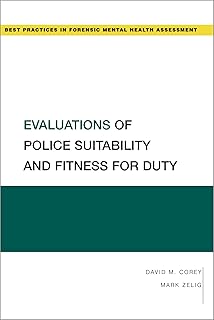RoB 2 Domain 5, focusing on bias in the selection of the reported result, is a critical aspect of risk assessment in research. This domain addresses reporting bias by evaluating whether the data leading to a specific result were analyzed as per a predetermined plan finalized before unblinded outcome data were available. It also considers whether the reported numerical result was selectively chosen from various eligible outcome measurements or analyses within the outcome domain.
RoB 2 assessments aim to guide researchers in understanding and applying the principles of bias detection. In a webinar held in October 2020, experts delved into the intricacies of this domain, explaining how to approach the signaling questions and interpret the findings. They emphasized the importance of adherence to pre-specified analysis plans to mitigate bias and ensure the credibility and reliability of research outcomes.
During the session, presenters illustrated an algorithm mapping the responses to signaling questions to judgments on the risk of bias. By providing real-world examples, they offered practical insights into navigating this domain effectively. The webinar targeted individuals interested in utilizing RoB 2 for bias assessment, including review author teams and CRG editors seeking to enhance their understanding of bias in result selection.
Matt Page, a Senior Research Fellow at Monash University, and Isabelle Boutron, a professor of epidemiology at the Université de Paris, led the webinar, bringing their extensive expertise in systematic reviews and bias methodologies. Page’s research focuses on enhancing transparency and reproducibility in systematic reviews, while Boutron’s work centers on meta-research and methodological aspects of intervention assessments.
Both presenters are actively involved in the Cochrane Bias Methods Group, underscoring their commitment to advancing research integrity and combating biases in evidence synthesis. Their collaboration with clinicians and researchers across various disciplines enriches their perspectives on addressing publication bias and selective reporting, crucial elements in ensuring the robustness of research findings.
Page’s role as an associate scientific editor for the Cochrane Handbook for Systematic Reviews of Interventions highlights his contributions to shaping best practices in evidence synthesis. Boutron’s leadership in Cochrane France and her involvement in the SPRIT-CONSORT executive committee underscore her dedication to promoting transparency and methodological rigor in research.
The webinar not only offered valuable insights into navigating RoB 2 Domain 5 but also provided attendees with practical tools and resources to enhance their risk assessment capabilities. By sharing their knowledge and experiences, Page and Boutron empowered participants to critically evaluate reporting biases and strengthen the quality of research outputs.
In conclusion, the webinar served as a platform for fostering a culture of methodological rigor and transparency in research practices. By equipping researchers and reviewers with the necessary skills to identify and address biases in result selection, initiatives like RoB 2 Domain 5 contribute to enhancing the credibility and impact of scientific evidence.
📰 Related Articles
- SEO Experts Adapt Strategies for AI-Driven Search Evolution
- Influential SEO Experts Shaping Digital Marketing Strategies for 2025
- AI Experts Advise Marketers on SEO Strategies for Search Evolution
- World Business Forum Sydney 2024: Purpose-Driven Strategies for Success
- World Bank’s Role in Enhancing Remote Learning Strategies Globally





